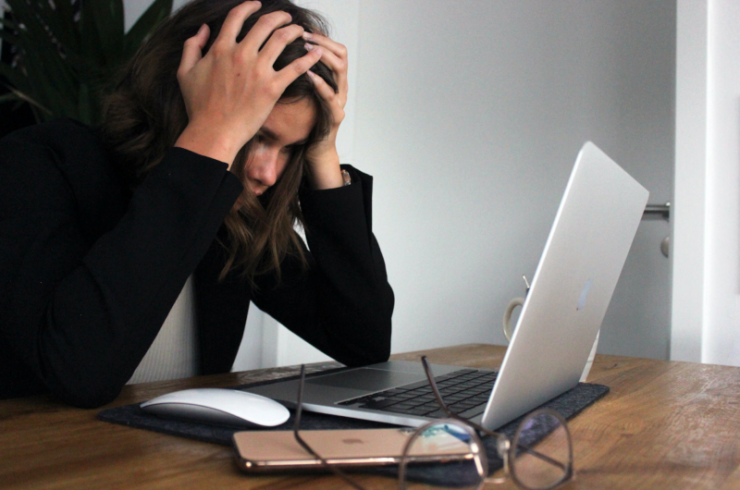Our lives can be repetitive, with many of us in perpetual exhaustion at the long hours we have to work. As a result, we can feel stressed, tired, and unmotivated — and it’s paramount to realize that these feelings are not out of the ordinary.
Burnout has become an increasingly common issue in a world where the ‘hustle’ mindset is glorified. However, we must understand that symptoms of burnout are not to be run away from and ignored but are instead important to acknowledge so we can take steps to deal with these symptoms accordingly.
Ignoring signs of burnout can lead us down a rabbit hole of further stress and exhaustion. In this article, we’ll explore this problem and address it effectively.
What is burnout?
Burnout is characterized by a state of physical, mental, and emotional exhaustion caused by prolonged or excessive stress. It occurs when we feel overwhelmed, unable to cope, and our energy levels are depleted.
The symptoms of burnout are similar to those seen in anxiety disorders and depression. It can negatively impact every aspect of our lives, including our work performance, productivity, health, and well-being.
How do I know if I’m at risk of burnout?
Certain factors can put you at greater risk of developing burnout, but it is often the consequence of working too hard without any respite. The signs can be evident but often ignored due to us ‘powering through the pain’ — which is viewed as a positive in society but (ironically) makes the problem worse.
Other risk factors include poor working conditions, a lack of job satisfaction, and being in a role where you feel undervalued or unappreciated. In addition, working long hours with little opportunity for breaks or holidays is another factor that can lead to burnout.
Your time management skills may require brushing up to avoid some of these overly long workdays. Combine these issues with little or no support from colleagues or management, and you have a perfect recipe for a stressful and unfulfilling work life.
You can also be at risk for burnout due to problems in your personal life. For example, caring for someone ill or has disabilities, financial problems, and relationship difficulties are key risk factors contributing to stress, exhaustion, and eventually burnout.
Have a look at the issues mentioned above and learn to recognize them in your work life or personal life. Then, once you have noticed their existence, you can work towards trying to minimize them as much as possible.
Signs of burnout
The signs of burnout can vary from person to person, but there are some common symptoms to look out for:
Exhaustion: Always feeling tired is a tell-tale sign of burnout, even after a good night’s sleep. The lack of energy can result in a loss of motivation to keep working and can bring your mood down significantly. If you feel as if you are always tired, then it is important to consider burnout as a potential cause.
Insomnia: It’s quite common for people who are burned out to have difficulty sleeping. This can be due to the stress and anxiety of trying to keep up with work, which can lead to racing thoughts at night. If you are struggling to fall asleep or stay asleep, consider seeking help so that you can get the rest you need.
Loss of Appetite: When we are stressed, our bodies go into fight-or-flight mode and release cortisol — the ‘stress’ hormone. This results in a loss of appetite as our bodies do not think they need food for energy. However, it is still important to eat regular meals, as skipping them will only make you feel more tired.
Mood swings: Burnout can cause extreme mood swings, from feeling irritable and short-tempered to being tearful and anxious. Mood changes can result from physical exhaustion as well as the mental stress of being burnt out. If you find your mood swinging more than usual, it could be a sign that you need to take a step back and assess your workload.
Illness: Prolonged periods of stress can take their toll on our immune system, making us more susceptible to illness. If you find you are constantly getting sick or taking longer to recover from illness, this could be a sign that you are burned out.
If you are suffering from physical signs of burnout, it’s important to see a doctor so they can rule out any other possible causes for your symptoms (such as an underlying medical condition).
Disengagement: When we are burned out, it is common to feel disconnected from our work. This can manifest itself in many ways, such as feeling cynical or negative towards your job or no longer finding enjoyment in what you do. If you used to love your job but now dread going to work, it is important to consider whether burnout might be the cause.
Unhealthy coping mechanisms: When we are stressed, it is common to turn to unhealthy coping mechanisms such as smoking, drinking alcohol, or overeating. If you find yourself using these unhealthy methods to deal with your stress levels, it is a clear sign that you need to address the root cause of the problem.
Concentration problems: Stress can also impact our ability to concentrate and focus on the tasks at hand. You might be making more mistakes than usual or struggling to complete simple tasks. It is important to recognize when concentration problems are becoming an issue so that you can address them before they negatively impact on your work performance.
How to avoid burnout in the workplace
If you are experiencing any of the above symptoms on a regular basis, it is crucial to seek help so you can start taking steps to recover. There are several things you can do to avoid burnout in the workplace:
Talk to your boss.
Your employer is responsible for ensuring that your workload is manageable so that you won’t be overworked. When you feel that you’re under constant pressure at your job, have a conversation with your boss about how you’re feeling and see if any changes can be made.
They may be able to offer you some flexible working arrangements or help with the delegation of tasks. It’s also worth considering whether any other changes could help you deal with an overwhelming work environment, such as a different shift pattern.
Make time for yourself outside of work.
It’s essential to have interests and hobbies outside of work that can help you relax and de-stress. This could be anything from going for walks, reading, or taking up a new sport. Having something to focus on outside of work can help reduce stress levels and promote a better work-life balance.
Taking up meditation has proven to be a common yet extremely useful way to reduce stress and calm your mind. Research from reputable medical sources, as well as a countless supply of anecdotal evidence, gives us the go-ahead to give this traditional practice a try.
If you’re not sure where to start, some great apps can help you out — Calm, Headspace, and Unplug are a few of the highly-rated industry leaders.
Take regular holidays.
When we’re burned out, it’s essential to take some time for ourselves to recharge our batteries. This could mean taking a few days off work, going on holiday, or even just taking some time out for yourself on weekends.
Getting a full reset can be very helpful. If you can, take an entire week or two off from your computer and get away from that hectic environment for a little while. Looking at your laptop screen for months on end without an extended break can never be healthy — so having some time away from those pixels can be worth its weight in gold.
If you are working in a job where it’s difficult to take long stretches of a holiday, then don’t stress — even taking a day off here and there to give yourself an extended weekend (by taking the Friday or Monday off) can be priceless for your mental health.
Seek professional help.
If you feel like you’re struggling to cope with burnout, it’s vital to seek professional help from your doctor or a counselor. They will be able to give you advice on how to manage your symptoms and will support you through this difficult time.
The bottom line
You don’t need to force yourself to power through.
We can’t stress this enough — feeling burnt out and telling yourself, ‘I can push through this, I just have to work harder,’ is not going to work all the time.
Maybe you might get a little more work done in the short term, but you are digging yourself into a bigger, more dangerous hole that may be even harder to get out of in the long run.
Acknowledge what you’re feeling and understand you are not a robot. Then, try and use some of the solutions and techniques above to help your situation.


